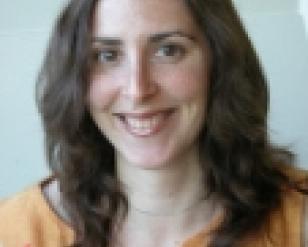According to editor Dr. Gerald Eisman, each volume of the Service Learning for Civic Engagement Series, is "organized around a specific community issue -- social justice, gender equality community health, political engagement -- and provides multiple perspectives on both the theoretical foundations for understanding of the issues and purposeful approaches to addressing them."
Promoting Health and Wellness in Underserved Communities starts "from the premise that our health status, vulnerability to accidents and disease and life spans -- as individuals and communities -- are determined by the organizations, delivery, and financing (or lack thereof) of health care. It explores how educators and community caretakers teach the complex web of inter-connection between the micro level of individual health and well-being, and the macro level of larger social structures." Dr. Debora Hammond from the Hutchins School of Liberal Studies wrote Chapter 4, "Cultivating Healthy Habits: Food, Gardens, and Community-Based Learning." The chapter documents service-learning projects in the Global Food Web seminar, providing students with hands on experience in school gardens and in other ares of the local food system . "Focusing an upper division interdisciplinary seminar on the topic of food provides an excellent opportunity for developing community-based learning projects. The need for healthy food and sustainable agricultural systems is a topic that is gaining considerable recognition in the public media and stimulates considerable interest among students," says Dr. Hammond. Additionally, in response to community request, students participate in collaborative research in connection with community food assessment initiatives. Hammond reports that as a result of the service-learning class, students begin to understand the connection between personal health, the health of the environment, and the overall health of society.
In "Connections Across Generations: Dialogue Groups Bridge the Generation Gap," Madeleine Rose discussed her course, "Group Work with Older Adults" which allows students and seniors to collaborate on an agenda of mutual interest for discussion. Current event topics may begin the discussions, but soon deeper meaning emerges as students have stereotypes dispelled and learn about life course, human development, individual histories and struggles, and the realities of aging. At the most personal level, Rose reports that students' fears about aging are lessened. "I was pleased to write about the service-learning course, Group Work with Older Adults (Sociology/Psych/Gerontology 432), in which students go to local senior centers and create intergenerational discussions. In lively "Connections Across Generations" groups, students and seniors talk about historical events, immigration journeys, cultural changes (what is Facebook?) and life cycle challenges. The chapter highlights the powerful impact on students of interacting with older adults; students confront their stereotypes and fears about aging, and feel better prepared to live and work in a world with an increasing proportion of elders. The analysis also conveys the significance of the weekly sessions to the seniors. Both groups report that their connection makes them feel hopeful about the future. To get a sense of the program from the students' point of view, please see the photo exhibit in Stevenson, outside the Sociology Department,"


